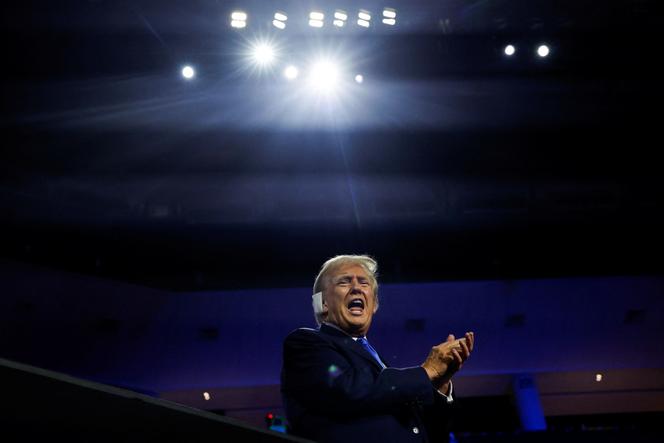


The little phrases that shook Asia for four years are back with the United States presidential campaign. Republican candidate Donald Trump rekindled the fears of countries dependent on the US for their security in an interview with Bloomberg Businessweek magazine, published late on Tuesday, July 16.
Asked whether he would defend Taiwan in the event of war with China, the former president replied, "I know the people very well, respect them greatly. They did take about 100% of our chip business. I think Taiwan should pay us for defense. You know, we're no different than an insurance company. Taiwan doesn't give us anything."
The Taiwanese Prime Minister Cho Jung-tai immediately responded: "The Taiwan-US relations is rock-solid from the past years." "We are willing to do more to defend ourselves and protect our security," he added.
Trump also seemed to question the very relevance of US intervention in the event of a Chinese invasion of the island, which Beijing claims as one of its provinces. "Taiwan is 9,500 miles away. It’s 68 miles away from China. A slight advantage and China’s a massive piece of land, they could just bombard it," said the candidate.
When Washington normalized relations with China in 1979, to the detriment of Taipei, the US passed a law to reassure Taiwan. But unlike military treaties promising to enter into conflict in support of allies, such as those with Japan, South Korea or NATO countries, the US only committed to providing Taiwan with the means to defend itself. The current US President Joe Biden has, however, sought to end the ambiguity by stating on six occasions during his term that the US would intervene in the event of a Chinese attack on the island.
In power from 2016 to 2020, Trump practiced assertive transactional diplomacy, threatening South Korea and Japan with withdrawal of support if they did not increase their defense spending, especially in favor of US equipment.
Taiwan invests in its defense, building submarines and buying fighter jets from the US, which it pays for mostly out of its own pocket. The island, which produces 90% of the latest-generation semiconductors including the chips that equip Apple smartphones and those that enable Nvidia to be at the forefront of artificial intelligence, is also keen to show that it is not insensitive to American frustrations. The giant TSMC is in the process of opening three factories in Arizona – despite the difficulty of finding workers there as efficient as in Taiwan.
You have 47.14% of this article left to read. The rest is for subscribers only.
